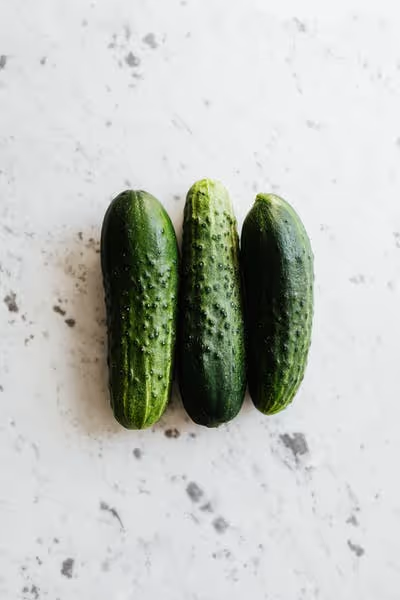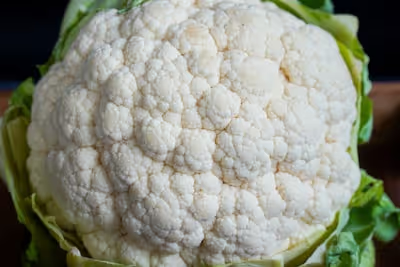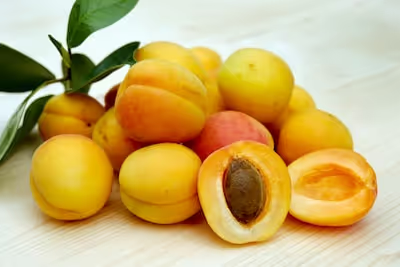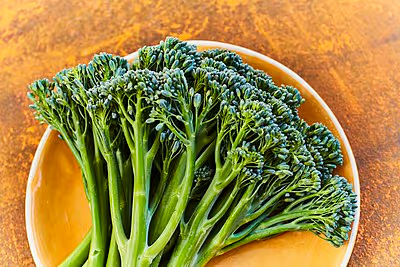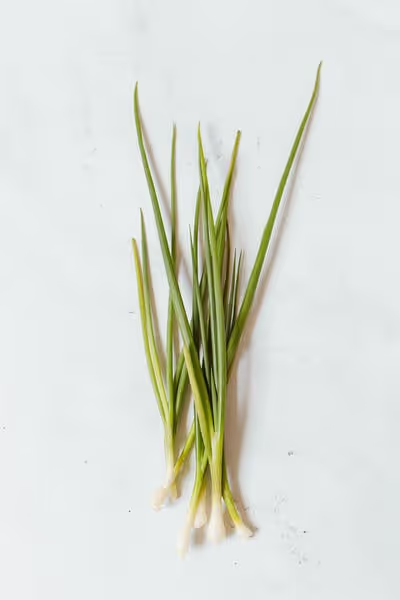Growing Onions: Simple Techniques for a Flavorful Harvest
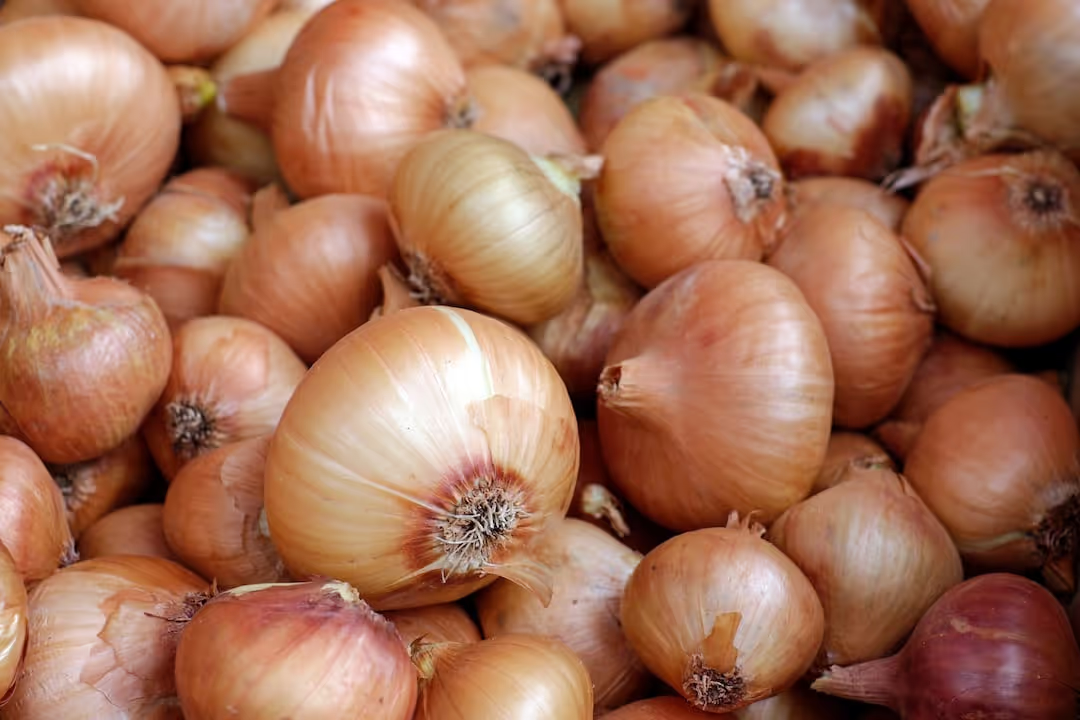
Growing Onions
Growing onions rewards eager gardeners with bold flavor, long storage life, and culinary versatility. Timing matters—plant onion sets early in spring and choose a sunny spot with loose, well-drained soil to maximize your crop. Ready to roll up your sleeves? The satisfaction of harvesting your own onions awaits below.
Cheatsheet: Fast-Track Onion Growing Tips
🌱 Choose Onion Type
Short-day for southern US/EU; long-day for northern. Bulb size relies on correct day length.
🗓️ Planting Window
Set out seeds indoors 8–10 weeks before last frost. Transplants/sets: direct sow 2–4 weeks before last frost. Soil temp: 50–75°F (10–24°C).
🌞 Ideal Site & Soil
- Full sun
- Well-drained, loose loam
- pH 6.0–7.0
- Work in compost before planting
🌧️ Water & Feed
- 1–1.5 in (2.5–4 cm) water/week
- Even moisture: avoid dry spells
- Side-dress with nitrogen every 3–4 weeks until bulbs form
🧹 Care & Weeding
- Keep beds weed-free; onions dislike competition
- Mulch with straw to retain moisture
🔪 Harvest & Cure
- Harvest when tops fall (90–150 days)
- Cure in airy shade 2–3 weeks until necks dry
- Store in mesh bags in cool, dry area
🛠️ Tools and Products You'll Need
- Onion seeds, sets, or transplants (correct type)
- Compost or balanced organic fertilizer
- Trowel or hand fork
- Watering can or hose
- Mulch (straw or grass clippings)
- Mesh bags for storage
🌿 Health & Self-Sufficiency
- Vitamin C, antioxidants
- 1 medium onion: 44 calories, 20% daily vitamin C
- Homegrown onions store 3–9 months
📈 Quick Stats
- Avg. yield: 20–50 onions per 10 ft (3 m) row
- 80% higher antioxidant content in homegrown vs. store-bought
-
Pick onions that match your latitude and pantry
Daylength controls bulbing, not your fertilizer or your feelings. Short day types bulb at 10 to 12 hours of light, intermediates at 12 to 14, long day at 14 to 16.
I learned the hard way by planting long day ‘Patterson’ in Texas and getting scallions the size of pencils. Match type to your sun and you win.
Seeds, sets, or transplants
Seeds give the widest variety and cleanest bulbs, which I start 10 to 12 weeks before planting. They need bright light and a trim every week to keep the tops at 3 to 4 inches, 7 to 10 cm.
Sets are small dormant bulbs that jump fast in cool soil. They can bolt if oversized, so I pick sets smaller than a dime.
Transplants from trays or bundles hit a sweet spot for speed and reliability. I set them when they are as thick as a pencil lead, not a pencil.
Short, intermediate, long day: quick guide
- Short day for the South and coastal low latitudes: ‘Texas 1015Y’, ‘Red Creole’, ‘Granex’ types for sweets and early bulbs.
- Intermediate for the middle belt: ‘Candy’, ‘Red Candy Apple’, ‘Sierra Blanca’ for big bulbs with flexible timing.
- Long day for the North: ‘Patterson’ and ‘Redwing’ for storage, ‘Walla Walla’ and ‘Ailsa Craig’ for plate-sized sweets.
Soil that grows fat, flavorful bulbs
Onions like loose, well drained earth with a pH of 6.0 to 6.8, according to RHS and multiple university extensions. I aim for 5 percent organic matter and rake the bed to a fine tilth so the necks never sit in a soggy pocket.
Sulfur shapes flavor and storability. Higher sulfur often means more bite and better storage, which Texas A&M AgriLife has documented in flavor work.
Fertility that feeds leaves first, bulbs later
Leaves power size, since every healthy leaf usually equals one ring. I spoon feed nitrogen in small doses until bulbing starts, then I stop feeding so the bulbs set skins and sugars.
A simple plan that has served me well: every 2 to 3 weeks apply 20 to 30 grams of actual N per square meter, or 0.2 to 0.3 pounds per 100 square feet, and quit once daylength triggers bulbing. I favor a balanced starter at planting and quick N side dressings after that.
Planting calendar and spacing
I set plants outdoors 2 to 4 weeks before my last spring frost when soil is 45 to 50 F, 7 to 10 C. Cold triggers roots, heat triggers bulbs, so I chase cool weather early.
For bulbs, I space 4 to 6 inches, 10 to 15 cm, in rows 12 inches, 30 cm, apart. For scallions, I crowd them at 1 inch, 2.5 cm, and pull thick and fast.
Water like a metronome, then taper
Consistent moisture gives uniform rings and clean skins. I target 1 inch of water each week, about 25 mm, and I keep foliage dry with drip so disease pressure stays low.
In the last two weeks before harvest I cut irrigation to almost nothing. The skins set, the necks dry, and storage life goes way up.
Mulch and weed control
Onions hate competition. I mulch with clean straw or shredded leaves right after planting to block light for weed seeds and to steady soil moisture.
Reflective silver mulch knocks back thrips in hot spells, which UC research has shown. Black plastic warms soil for spring plantings and speeds early growth.
Flavor is farming, not luck
Warm nights and steady water yield mild, sweet bulbs. Dry periods and high sulfur push pungency and storage power.
I save my sweetest beds for ‘Walla Walla’ and my higher sulfur corner for storage workhorses like ‘Patterson’. It tastes like planning, because it is.
Yield benchmarks that help you plan
At 4 inch spacing, a 10 foot row can give 30 to 50 bulbs, roughly 10 to 20 pounds, 4.5 to 9 kg, in my trials with average soils. Rich beds and long day storage types can double that.
US eaters go through about 20 pounds, 9 kg, of onions per person each year, according to USDA ERS. Global production tops 100 million metric tons, per FAOSTAT.
Problems I see every season and how I handle them
Thrips
Silvery streaks and crinkled leaves give them away. I rotate beds, use reflective mulch, and hit heavy flare ups with insecticidal soap or spinosad, always in the evening to spare pollinators.
Onion maggot
Seedcorn maggot can join the party too. I use row cover from planting until strong growth, remove cull onions, and apply beneficial nematodes to infested ground in late spring.
Downy mildew and purple blotch
Cool, humid nights invite trouble. I space for airflow, water early in the day, and rotate out of alliums for 3 to 4 years.
Neck rot
Thick, juicy necks that never dried invite storage loss. I reduce late nitrogen, stop watering before harvest, cure hard, and only store tight necked bulbs.
Bolting and how I keep tops calm
Sudden cold snaps after planting, oversized sets, or long stress can push a flower stalk. I plant sets small, protect new plantings with row cover during cold spells, and harvest any plant that throws a hard center for immediate use.
Harvest timing that nails storage
I wait until 50 to 80 percent of tops have naturally bent and the neck feels soft. I do not smash the tops by hand, since that invites rot.
Pull gently, leave the tops on, and cure for 2 to 4 weeks at 80 to 90 F, 27 to 32 C, with brisk airflow and low humidity. Then I trim tops to 1 inch, 2.5 cm, and store at 32 to 35 F, 0 to 2 C, in breathable crates.
Kitchen grade sorting at the bench
First, I separate any bulb with a fat neck or blemish and eat those first. Perfect tight necked bulbs with dry skins go to long storage.
Sweet onions taste like candy but usually store for weeks, not months. Storage types carry me to spring if cured and kept dry.
Container and small space tactics
I grow scallions in window boxes 8 inches, 20 cm, deep, and they never complain. For bulbs in pots, I use a 10 to 12 inch, 25 to 30 cm, deep container, a gritty mix, and 4 inch spacing with ruthless watering discipline.
Companions and rotation
Carrots, beets, and lettuce share space politely and fill gaps while onions size up. I keep onions away from last year’s garlic, leeks, or chives to dodge disease carryover.
Raised beds, drip, and simple gear that pays off
- Raised beds, 6 to 8 inches high, keep roots above spring chill and shed water.
- Drip lines at 12 inch spacing with 0.5 gph emitters deliver precise moisture and keep foliage dry.
- A soil test kit helps dial in pH and nutrients before you waste a season.
- Row cover, 0.5 oz fabric, blocks wind and pests in early spring without cooking the plants.
- Harvest crates and a box fan turn a garage corner into a curing room.
My simple calendar for Growing Onions
- Start seed inside 10 to 12 weeks before planting date. Trim tops weekly, keep at 60 to 65 F, 16 to 18 C, with strong light.
- Transplant or set out when soil holds 45 to 50 F, 7 to 10 C. Water in with a mild starter solution.
- Side dress light nitrogen every 2 to 3 weeks until bulbing. Weed early and often.
- Stop feeding at bulbing. Reduce water the last two weeks.
- Harvest when tops fall, cure hard, then store cool and dry.
Variety picks by goal
- Fast spring bulbs in warm zones: ‘Texas 1015Y’, ‘Yellow Granex’, ‘Red Creole’.
- Huge exhibition onions: ‘Ailsa Craig’, ‘Kelsae’ with rich soil and long days.
- Best keepers: ‘Patterson’ and ‘Redwing’ up north, ‘Copra’ used to rule and its modern equivalents fill that slot.
- Sweet slicing: ‘Walla Walla’, ‘Candy’, ‘Vidalia type Granex’ in the right region.
- White bulbs for salsa: ‘Sierra Blanca’, ‘White Lisbon’ for scallions.
Buying guide for sets, seed, and starts
For sets, I choose mixed sizes under 0.75 inch, 2 cm, from fresh bins with no sprouting. For starts, I prefer pencil lead thick plants shipped in late winter and I plant them within a week.
For seed, I buy the current year’s lot and store it cool and dry, since onion seed loses vigor fast. Fresh seed makes uniform stands that save weeding time.
Organic and mineral amendments I actually use
- Compost at 0.5 to 1 inch, 1 to 2.5 cm, across the bed for structure, not raw nitrogen.
- Blood meal or fish hydrolysate for early quick N if the soil test says I am short.
- Gypsum or elemental sulfur to address calcium or sulfur per soil test and to tweak flavor and pH thoughtfully.
- Wood ash sparingly on acidic soils, never near young transplants if pH is already high.
Curious crossovers that help
Garlic curing taught me that air movement beats heat for storage prep, and onions respond the same way. Carrot bed prep taught me to sift out clods, which keeps onion shoulders smooth and market ready.
Field notes and numbers I trust
University extensions in New Mexico, Utah, and Wisconsin all stress daylength choice and steady moisture. Royal Horticultural Society guidance on spacing and feeding aligns with what I see in raised beds.
Bulbing responds to daylength first, then temperature, a point echoed across extension bulletins and grower guides. Build leaves early, let bulbs swell late.
FAQs I get every spring
Can I trim tops after planting
Yes, if they flop in wind, snip to 4 inches, 10 cm. The plants do not mind and stand straighter.
Why are my onions hot
Likely high sulfur soil, heat stress, or reduced irrigation near harvest. Choose sweet types, steady the water, and plant in cooler months for milder flavor.
Why do mine rot in storage
Thick necks, late nitrogen, poor curing, or disease can start the slide. Thin the necks by stopping feed at bulbing and cure warmer with stronger airflow.
Regional timing snapshots
- Gulf Coast and Deep South: plant short day sets or transplants from late fall to mid winter, harvest late spring before high heat.
- Mid latitudes: plant intermediate types late winter to early spring, harvest midsummer.
- Northern tier: start long day seeds under lights in late winter, transplant early spring, harvest late summer.
Simple mistakes that shrink bulbs
- Planting the wrong daylength type for your latitude.
- Letting weeds steal early nitrogen and light.
- Feeding late into bulbing, which fattens necks and ruins storage.
- Overwatering at the end, which softens skins and invites rot.
Why Growing Onions belongs in every crop plan
They clean up the pantry, bridge seasons, and reward steady habits. The crop teaches patience and timing, and it pays you back in every stew, pickle jar, and skillet of sizzling rings.
I seed mine while snow still rims the beds, then I watch the sun climb toward the trigger daylength. The moment that switch flips and bulbs start swelling feels like magic, and the cure room smells like a promise kept.
Frequently Asked Questions About Growing Onions
What is the optimal time to plant onion sets?
Plant onion sets in early spring once temperatures consistently reach around 45°F (7°C). An early start allows onions to develop properly before summer heat sets in.
How deep should onion bulbs be planted?
Set your onion bulbs shallowly into the soil—typically 1 inch (2.5 cm) deep—covering them lightly while leaving the upper tip visible. Plant bulbs 4 to 5 inches (10 to 13 cm) apart, in rows spaced approximately 12 to 16 inches (30 to 40 cm).
Which soil conditions favor onion growth?
Onions thrive best in well-drained, loamy soils rich in organic matter. Amend heavy clay soils with compost to improve drainage. Aim for a soil pH between 6.0 and 6.8 for optimal bulb development.
How frequently should onions be watered?
Water onions consistently, about once a week, providing approximately 1 inch (2.5 cm) of water. Avoid overwatering, which can encourage fungal diseases, and reduce watering as harvest nears to encourage proper bulb formation.
When and how should onions be fertilized?
Feed onions with a balanced organic vegetable fertilizer at planting and again when bulbs begin to enlarge. Avoid high-nitrogen fertilizers late in the growing season, as they can encourage foliage growth over bulb formation.
How can onion maturity be identified?
Onions signal readiness for harvest once the tops turn yellow and fall over. Pull bulbs gently from the soil and let them dry in the sun for a few days before bringing them indoors for curing.
How should freshly harvested onions be stored?
Store cured onions in a cool, dry place with good airflow, ideally around 32–40°F (0–4°C). Properly stored onions can keep for several months, providing flavor long after harvesting.
Growing onions rewards patience, a sharp eye for detail, and respect for the rhythms of nature. Start with healthy sets, plant at the right depth, and water just enough. Feed the soil; it feeds you back. Good onions thrive on sunlight, space, and steady moisture—skip the guesswork, trust your senses. Harvest when the tops flop and the necks dry down. Cure them well, and you’ll taste the difference all year. Don’t be afraid to try new companions—mix onions with crops like lettuce or arugula for a little harmony in your beds. Remember, the soul of good cooking starts in dirt under your nails and an onion in your hand.
Pro Tips: Organic Onion Cultivation for Peak Health and Flavor
Soil Nutrition Essentials
- Enrich bed with compost (aged 3+ months) for slow nutrient release.
- Integrate rock phosphate (approx. 1 lb./45 sq. ft. or 450 g/4 sq. m) prior to planting.
- Apply diluted kelp extract biweekly (ratio 1:100 kelp to water) to boost trace minerals.
Effective Companion Planting
- Alternate onions with carrots to mutually deter onion fly and carrot fly.
- Border onion rows with chamomile or marigold to repel nematodes naturally.
- Plant onions near tomatoes or peppers for improved sulfur uptake and enhanced flavor profile.
Organic Pest Management Strategies
- Deploy yellow sticky traps as early-warning signals for thrips and flies.
- Dust foliage weekly with diatomaceous earth during dry weather to reduce pest populations.
- Apply neem oil spray (2 tsp neem oil/1 quart water or 10 ml neem oil/1 liter water) every 14 days for natural pest suppression.
Watering Techniques for Healthier Bulbs
- Use drip irrigation; it reduces fungal diseases by limiting foliage wetness.
- Gradually decrease watering frequency during final 3 weeks pre-harvest to enhance bulb storage life.
Harvest Timing for Optimal Nutrition
- Harvest morning hours, bulbs lose fewer nutrients versus mid-day collection by up to 10%.
- Allow harvested onions to cure outdoors for 10–14 days under partial sun to increase antioxidant content.
Find out which plants will thrive in your garden!
Answer a few fun questions and get custom plant recommendations perfect for your space. Let’s grow something amazing together!

start your season

